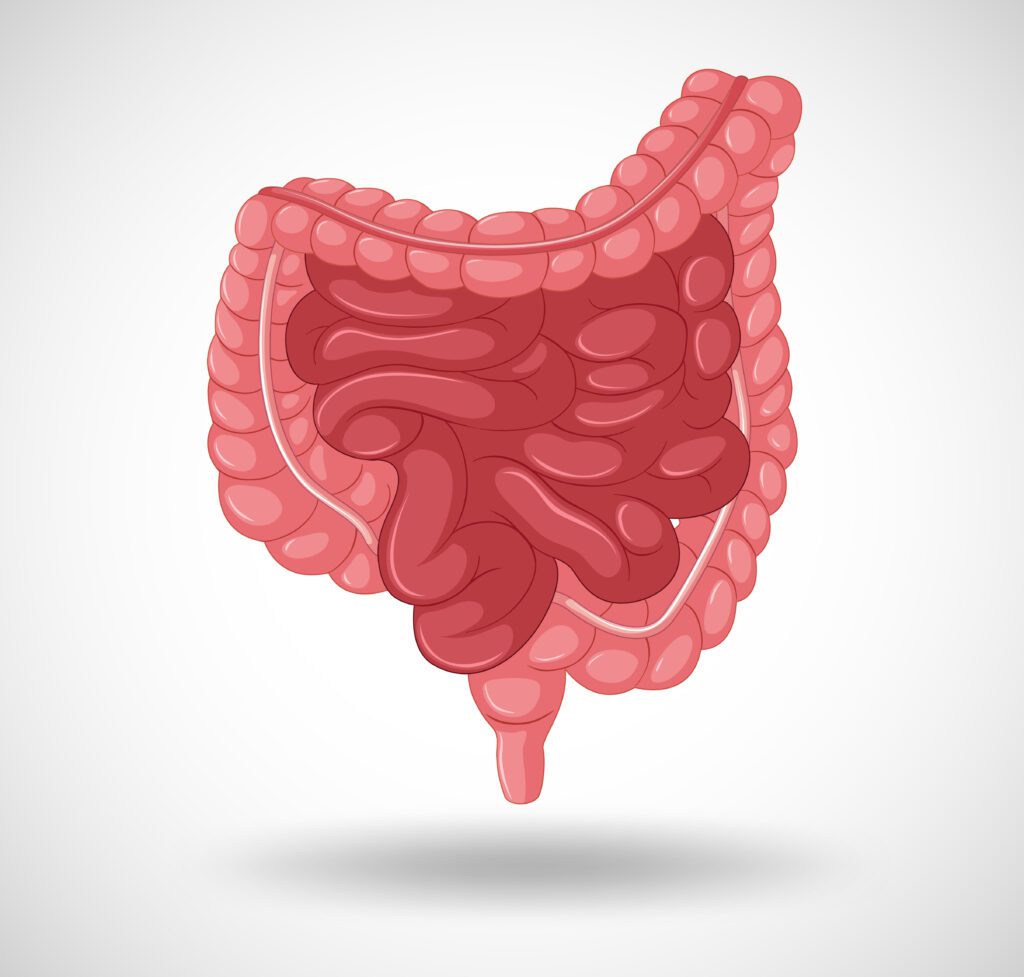Understanding Irritable Bowel Syndrome (IBS)
A Naturopathic Guide to Root Causes & Lasting Relief
Living with Irritable Bowel Syndrome (IBS) can be a daily battle. It’s the persistent bloating, the unpredictable bowel habits, the cramping, and the constant worry about what to eat. If you’re struggling with IBS, you know that it can impact your social life, your work, and your overall sense of well-being.
Many people are told that IBS is something they just have to “live with.” As a Naturopathic Doctor, I believe differently. My approach starts with the understanding that IBS is a collection of symptoms, not a final diagnosis. Lasting relief comes from playing health detective—investigating and addressing the underlying root causes of your specific digestive distress. There is absolutely hope for a calmer, more comfortable gut.

Dr. Jennifer Luis, ND
Takes a root-cause approach to IBS, using comprehensive testing to uncover your unique triggers and guide a personalized path to lasting digestive relief.
What is Irritable Bowel Syndrome (IBS)?
Irritable Bowel Syndrome (IBS) is a common functional gastrointestinal disorder. “Functional” means that while the digestive tract looks structurally normal upon examination (like a colonoscopy), it isn’t functioning correctly. It’s characterized by a group of symptoms that occur together, including repeated abdominal pain and changes in your bowel movements.
IBS is often categorized into three main subtypes based on the primary bowel habit:
IBS-D: (Diarrhea-predominant)
IBS-C: (Constipation-predominant)
IBS-M: (Mixed, with alternating diarrhea and constipation)

Common Symptoms of IBS
While the experience is unique to each person, common symptoms of IBS often include:
- Abdominal pain, cramping, or discomfort (often related to bowel movements)
- Chronic and persistent bloating and gas
- Diarrhea, constipation, or alternating between both
- Changes in the appearance or frequency of bowel movements
- A feeling of incomplete evacuation
- Development of new or worsening food sensitivities
- Fatigue and brain fog, often linked to gut inflammation
The Root Causes of IBS from a Naturopathic Perspective
A naturopathic approach to IBS goes beyond managing symptoms. We seek to understand and treat the underlying factors that are driving the dysfunction. Here are some of the most common root causes I investigate in my practice:
Your gut and brain are in constant communication. Chronic stress, anxiety, or trauma can significantly alter gut function, motility, and pain perception, making you more susceptible to IBS symptoms.
A significant body of research now suggests that a large percentage of IBS cases—especially IBS-D—are actually caused by an overgrowth of bacteria in the small intestine. This is a critical distinction to make, as the treatment for SIBO is very specific. You can learn more about the crucial differences in my post, SIBO vs IBS – Differences, Causes & Treatments.
Damage to the gut lining can allow undigested food particles and bacterial toxins to enter the bloodstream, triggering inflammation and immune reactions that contribute to IBS symptoms and food sensitivities.
While not the cause for everyone, delayed food sensitivities (often IgG-mediated) can be a major trigger for inflammation and digestive distress in many individuals with IBS.
Many cases of IBS begin after a bout of gastroenteritis (“food poisoning”). The infection can damage the nerves of the gut, leading to altered motility and the development of SIBO.
Naturopathic Diagnosis and Testing for IBS
To move from a vague diagnosis of IBS to a clear understanding of your specific root causes, a thorough investigation is essential. This begins with a detailed health history, but often includes targeted functional testing:
A non-invasive test to accurately diagnose or rule out Small Intestinal Bacterial Overgrowth.
This test provides a wealth of information about your gut microbiome, checking for bacterial or yeast overgrowth, parasites, markers of inflammation, and digestive function.
Blood testing (e.g., IgG panels) or a structured elimination diet can help identify specific foods that may be triggering your symptoms.
A Naturopathic Pathway to Healing
Once we understand your unique triggers, we can create a personalized, holistic treatment plan. My approach to naturopathic treatment for IBS is not a one-size-fits-all protocol but a partnership to restore your digestive health. Key pillars often include:
Personalized Dietary Support
This may involve a temporary therapeutic diet if antimicrobial treatment is not possible (i.e. pregnancy and nursing) such as the Low FODMAP diet, which is highly effective for reducing symptoms by limiting fermentable carbohydrates that feed problematic bacteria. The goal is always to eventually expand the diet to be as diverse as possible when antimicrobials can be used.
Herbal Medicine and Supplements
We may use targeted antimicrobial herbs to address SIBO or dysbiosis, gut-healing nutrients like L-glutamine and zinc to repair the intestinal lining, specific probiotics to reinoculate beneficial bacteria, and digestive support like enzymes or bitters.
Stress Management
Since the gut-brain axis is so critical, incorporating stress-reduction techniques like mindfulness, meditation, or gentle yoga is a non-negotiable part of a successful treatment plan.
Lifestyle Recommendations
Optimizing sleep, engaging in appropriate physical activity, and other lifestyle factors are all considered to support your overall well-being and digestive function. Learn more about how I approach these concerns in my blog post IBS Naturopath Vancouver for Digestion System Conditions.

You Can Find Relief from IBS
Living with IBS can be isolating and frustrating, but please know that you are not alone, and you do not have to simply "live with it." By taking a comprehensive, root-cause approach that investigates beyond the symptoms, it is absolutely possible to find lasting relief, restore your digestive health, and reclaim your quality of life.
Ready to Uncover the Root Cause of Your IBS?
If you are ready to move beyond managing symptoms and explore a personalized, naturopathic approach to healing your gut, Dr. Jennifer Luis is here to help guide you.